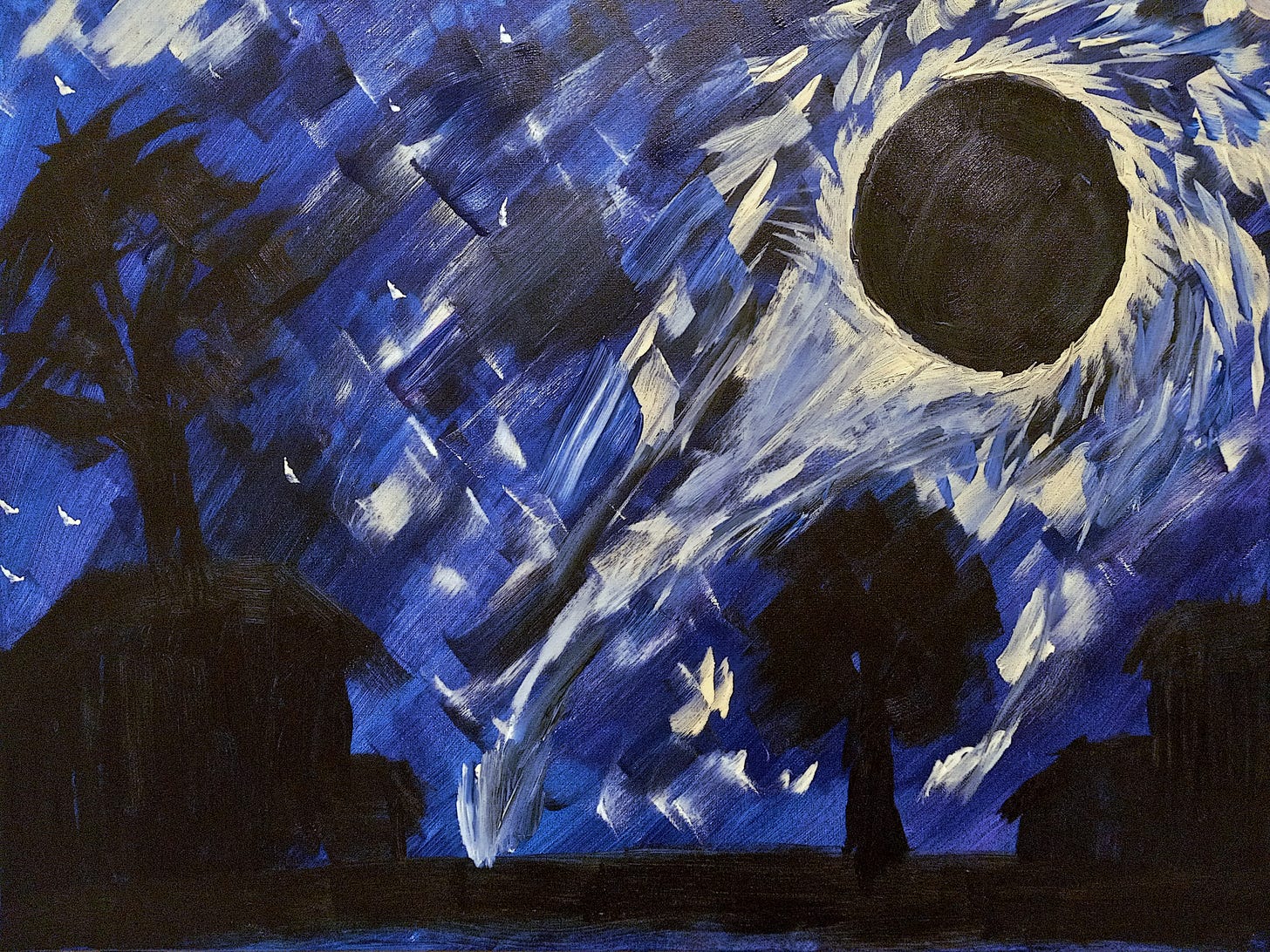Unpacking trauma in the public arena.
How writing a book gave me a sobering take on my depression.
Writing a book is a lot of work. More work than I was prepared for. I flirted with the book for over a decade in bits and pieces of things, but when I started last year to really put the pedal to the metal, things began getting complicated. It was like returning to the attic of my memories and sorting through old photo albums, looking at old contact lists, going through old mail. A lot of it is old. I think when the nature of the book is trauma and grief, you are either hesitant to unpack things or it comes in gushes. A lot of this will also be sections from the book, so I'm plagiarizing myself and it's easier than writing new material.
Okay so what is the book and what is it about, exactly? The title of the book is And The Day Goes On and it's the title of this substack. It's a book about grief, and how the suspension of trauma does nothing but freeze you in time as the rest of the world moves forward. Whenever I stay inside and have long periods of work off, everything feels as if time is at a standstill. But when I walk outside for the first time in days to run errands or talk to people for the first time in weeks or months, the world kept going. It wasn't really waiting for me, and it never feels like I can eventually catch up either.
A lot of the book is centered around Remilia, a young girl stuck in a shitty life. I seriously understate things when I say she makes some profound mistakes handling her trauma, but the growth of her story is ultimately at the heart of the book. I as the author am mostly just a passerby, doing his best to stay disconnected from events that I am ultimately trying to run away from. It's not quite real but not entirely not, but somewhere in-between. It's a fictionalization of a memoir to create emotional distance between the book and myself. When people say real-life events inspired a book they wrote, I think of it as the opposite for me—fiction has distorted the truth in an attempt to run away from reality.
Writing the book was a realization of how much trauma I actually had left to unpack in my life. I think at several points in my life I submerged my depression in twenty layers of ironic shitposting jokey jokes and it felt disingenuous after a while to myself, but also to people watching. I was not in fact handling my shit that well and it can give the impression that I am. In which kind of makes the notion of depression being something to get those sick reblogs and all their 'big mood's where we're all just complacent knowing we all have depression. Nothing feels like it fixes itself. As Kurt Vonnegut once said, crying and laughter are responses to stress and exhaustion, and I prefer to do the latter because there's less cleaning up to do afterwards. But the laughter doesn't mean the exhaustion isn't there.
When depression just becomes another public outcry, it just becomes another post in somebody's feed to scroll past and briefly empathize with before you continue scrolling through more shitposts. When you think about it, it's all kind of ugly because it's almost as if discussing something as fickle and delicate as depression is better suited to an intimate conversation with people you trust rather than public rabblerousers. Of course though this is how I handled my depression for most of my life—I never had outlets as a child because complaining about my mental health around my family would get a swift kick in the ass, or at least I thought it would. So publicly announcing it somewhere where I felt safer became the kneejerk response. Eventually I learned how unhealthy that was so now I'm writing this stupid book.
Writing an earnest book about depression feels voyeuristic in a lot of ways and it's an uncomfortable look at something we've kinda just accept as constants in our lives and are complacent with it. Reading about trauma shouldn't be “entertaining” in the sense of the word. Relating to it should feel like shit, like you didn't learn anything from it. It should make you feel sick knowing somebody has gone through tremendous suffering in their lives and you're consuming it as “entertainment” because... why? For a long time I concerned myself with the “why” and then I stopped asking questions because I decided to write this book only for myself, and if other people were interested they could read it.
Anyways, that's the book and what it's about. It's all a very nebulous summary because the book itself is a fragmentation of memories and often calls the nature of such into question. At over 500 pages and 100,000 words I can feel like I can say it's “done”, that is until my editors and friends inevitably tear it apart and structure it into something I can share with people.





